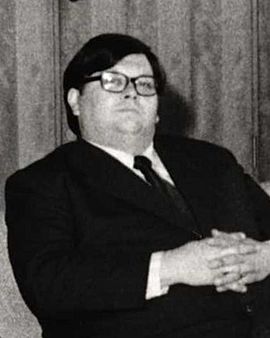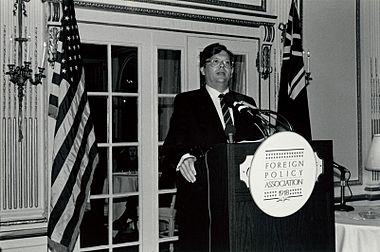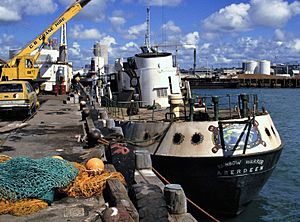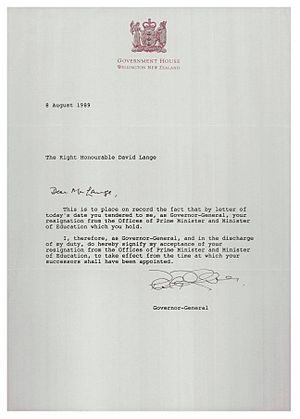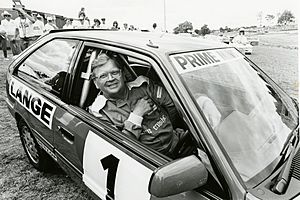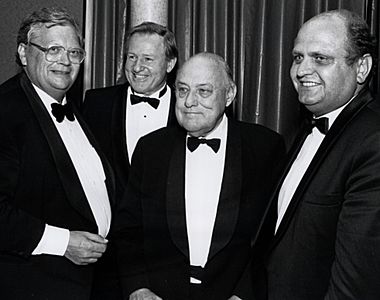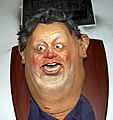David Lange facts for kids
Quick facts for kids
David Lange
|
|
|---|---|
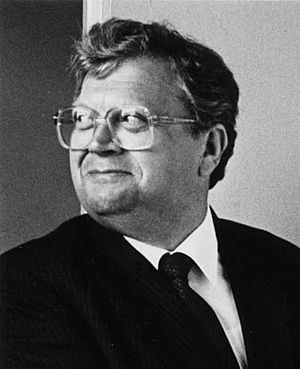
Lange in 1986
|
|
| 32nd Prime Minister of New Zealand | |
| In office 26 July 1984 – 8 August 1989 |
|
| Monarch | Elizabeth II |
| Governor-General | David Beattie Paul Reeves |
| Deputy | Geoffrey Palmer |
| Preceded by | Robert Muldoon |
| Succeeded by | Geoffrey Palmer |
| 27th Attorney-General of New Zealand | |
| In office 8 August 1989 – 2 November 1990 |
|
| Prime Minister | Geoffrey Palmer Mike Moore |
| Preceded by | Geoffrey Palmer |
| Succeeded by | Paul East |
| 35th Minister of Education | |
| In office 24 August 1987 – 8 August 1989 |
|
| Preceded by | Russell Marshall |
| Succeeded by | Geoffrey Palmer |
| 20th Minister of Foreign Affairs | |
| In office 26 July 1984 – 24 August 1987 |
|
| Preceded by | Warren Cooper |
| Succeeded by | Russell Marshall |
| 23rd Leader of the Opposition | |
| In office 3 February 1983 – 26 July 1984 |
|
| Deputy | Geoffrey Palmer |
| Preceded by | Bill Rowling |
| Succeeded by | Robert Muldoon |
| Member of the New Zealand Parliament for Mangere |
|
| In office 26 March 1977 – 12 October 1996 |
|
| Preceded by | Colin Moyle |
| Succeeded by | Taito Phillip Field |
| Personal details | |
| Born | 4 August 1942 Otahuhu, Auckland, New Zealand |
| Died | 13 August 2005 (aged 63) Middlemore, Auckland, New Zealand |
| Cause of death | Complications from renal failure and diabetes |
| Resting place | Waikaraka Cemetery |
| Political party | Labour |
| Spouses |
Naomi Joy Crampton
(m. 1968; div. 1991)Margaret Pope
(m. 1992) |
| Children | 4 |
| Parents | Roy Lange Phoebe Fysh Lange |
| Relatives | Peter Lange (brother) Michael Bassett (third cousin) |
| Profession | Lawyer, Politician |
| Awards | Right Livelihood Award |
| Signature |  |
David Russell Lange (4 August 1942 – 13 August 2005) was an important New Zealand politician. He served as the 32nd Prime Minister of New Zealand from 1984 to 1989.
Lange grew up in Otahuhu, Auckland. He became a lawyer and often helped people who were struggling. He was known for his strong speaking skills and quick wit. In 1977, he was elected to the New Zealand Parliament. He became the leader of the Labour Party in 1983.
In 1984, Lange led his party to a big win in the election. At 41, he became one of New Zealand's youngest prime ministers. His government made big changes to the economy. He also made New Zealand a nuclear-free zone, which meant nuclear-powered or nuclear-armed ships could not enter New Zealand waters. This policy made New Zealand famous around the world. Lange was re-elected in 1987 but resigned two years later. He is remembered for his strong stance against nuclear weapons.
Contents
Early Life and Becoming a Lawyer
David Lange was born on 4 August 1942 in Otahuhu, a part of Auckland. He was the oldest of four children. His father, Eric Roy Lange, was a doctor, and his mother, Phoebe Fysh Lange, was a nurse.
Lange went to school in Auckland and later studied law at the University of Auckland. He was a very good speaker, which he felt helped him make up for being a bit clumsy when he was younger.
He worked from a young age, delivering newspapers and telegrams. He also worked at a meat freezing plant, which helped him understand the challenges faced by ordinary workers.
In 1967, Lange became a lawyer. He traveled for a few months before settling down. In 1968, he married Naomi Crampton. He continued his law studies and earned a master's degree in 1970. Lange worked as a lawyer in Northland and Auckland. He often helped people who were struggling. For example, he helped the Polynesian Panthers group share information about legal rights during the 'dawn raids' in the 1970s.
In 1976, Lange helped defend former politician Phil Amos. Amos had protested against a US warship entering Auckland Harbour. Lange successfully argued his case, which brought public attention to the anti-nuclear issue. This event inspired Lange, and he later helped pass a law to ban nuclear ships from New Zealand.
Political Journey
Lange joined the Labour Party in 1963. He helped with election campaigns for other politicians. In 1974, he ran for the Auckland City Council but was not elected.
In 1977, Lange decided to run for Parliament in the Mangere area. He won the by-election and became a Member of Parliament (MP). Mangere was a working-class area in Auckland with many Māori residents.
As an MP, Lange quickly became known for his debating skills and sharp wit. He often challenged the Prime Minister at the time, Robert Muldoon. In his first speech in Parliament, he talked about how children in New Zealand had fewer rights than animals.
After the 1978 election, Lange joined the Labour Party's "Shadow Cabinet." This group of opposition MPs prepares to take over government roles. In 1979, he became the Deputy Leader of the Labour Party. He also took on roles as Shadow Attorney-General and Shadow Minister of Justice.
In 1983, Lange became the leader of the Labour Party and the Leader of the Opposition. This meant he was the main voice against the government.
Leading the Opposition
As Leader of the Opposition, Lange faced debates within his own party about economic policy. The Labour Party eventually created an election plan that tried to appeal to many different groups.
In 1984, Prime Minister Muldoon called a sudden election. This happened because an MP voted against the government on a bill to create a nuclear-free zone. The quick election meant Labour had to use their unfinished policy ideas.
Lange led Labour to a big victory in the 1984 election. However, before he officially became Prime Minister, there was a financial crisis. The New Zealand dollar was losing value quickly. Muldoon at first refused to follow Lange's advice to devalue the currency. But eventually, Muldoon agreed, and Lange was sworn in as Prime Minister.
Prime Minister of New Zealand
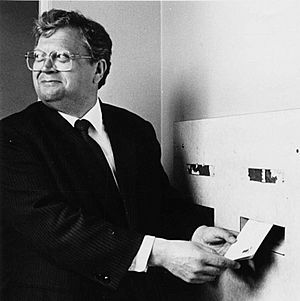
David Lange became New Zealand's 32nd Prime Minister on 26 July 1984. At 41 years old, he was the youngest prime minister of the 20th century. During his first term, he was also the Minister of Foreign Affairs.
First Term: 1984–1987
Lange's government faced serious economic problems. They held a special meeting to discuss how to fix New Zealand's economy.
Economic Changes (Rogernomics)
Lange appointed Roger Douglas as his Minister of Finance. Douglas introduced many fast changes to the economy, which became known as 'Rogernomics'. These changes removed many government rules and payments (subsidies). For example, farmers were affected when their subsidies were removed. Many of these changes were controversial and caused some of Labour's traditional supporters to be unhappy.
The government also removed rules on interest rates and foreign exchange. In 1985, the New Zealand dollar was allowed to float freely, meaning its value was set by the market. Later, some government departments were turned into state-owned businesses, which led to many job losses.
Lange believed the government should help its citizens. He said that where the market works well, it should be left alone. But if the market causes unfairness or poor results, the government should get involved.
Standing Up Against Nuclear Weapons
Lange became well-known internationally for his strong stand against nuclear weapons. His government decided not to allow nuclear-capable ships into New Zealand waters. This policy continues today. In 1985, Lange famously refused to allow the American ship USS Buchanan to visit. This upset the United States, and they stopped sharing intelligence and doing military exercises with New Zealand.
In March 1985, Lange took part in a famous debate at the Oxford Union in England. He argued that "Nuclear weapons are morally indefensible." His performance gained him international respect.
In 1987, Lange's government passed the New Zealand Nuclear Free Zone, Disarmament, and Arms Control Act 1987. This law officially made New Zealand a nuclear-free zone. The United States saw this as breaking a treaty and stopped its military partnership with New Zealand.
The Rainbow Warrior Incident
New Zealand's relationship with France became difficult in 1985. French secret agents bombed and sank the Greenpeace ship Rainbow Warrior in Auckland Harbour. A photographer was killed. In 1986, Lange reached a deal with France, with the help of the United Nations. France agreed to pay New Zealand money and apologize. In return, two French agents who were caught were sent to a French military base for three years. However, they were released early, which was a breach of the agreement.
Social Changes
During Lange's first term, his government also made some social changes. On 1 August 1987, the Māori Language Act 1987 was passed. This made te reo Māori an official language of New Zealand.
1987 Election
Lange's government was re-elected in August 1987. This was the first time a Labour government had won a second term since 1938. Lange traveled around the country during the campaign. He noticed protests against his government, especially in smaller towns. Labour did not have a full election plan because Lange and Douglas disagreed on future policies. Lange wanted to focus more on social services like health and education in his second term.
Second Term: 1987–1989
After the 1987 election, Lange became the Minister of Education. He wanted to focus on social policies and limit the influence of economic reforms.
Changes to Schools
As Minister of Education, Lange introduced a big change called Tomorrow's Schools. This changed how primary and secondary schools were run. The Department of Education became the Ministry of Education, with a supervising role. Parents at each school could now elect their own boards to manage the school.
These changes were criticized by some who felt they brought too much focus on business ideas into education.
Leadership Challenges and Resignation
In 1988, disagreements over economic policy grew stronger between Lange and Roger Douglas. Douglas resigned after Lange disagreed with his plans for a flat income tax. Douglas continued to speak out against Lange. In December 1988, Douglas tried to challenge Lange for the leadership of the Labour Party, but he failed.
The economic changes had caused many Labour Party members to feel unhappy. In April 1989, an MP named Jim Anderton left the party and formed a new one called NewLabour Party. About one-third of Labour's members joined this new party.
In August 1989, the Labour MPs voted to bring Douglas back into the Cabinet. Lange saw this as a sign that they no longer supported his leadership. He resigned five days later, on 8 August 1989. Lange was the first elected Labour Prime Minister who did not die in office or lose an election.
Leadership Style
Lange was a very good speaker and could inspire people. However, he was also sensitive to criticism and tried to avoid conflict. He was good with the media but sometimes struggled with political strategies.
Motor Racing Hobby
While he was Prime Minister, David Lange enjoyed competitive motor racing. He took part in the New Zealand One Make Ford Laser Sport series.
After Being Prime Minister
Cabinet Minister: 1989–1990
Geoffrey Palmer took over as Labour leader and Prime Minister in 1989. Lange became the Attorney-General and a Minister of State. Palmer was later replaced by Mike Moore before the 1990 election, which Labour lost. Lange was re-elected as an MP for Mangere in 1990 and again in 1993.
Leaving Parliament
After Labour lost the government in 1990, Lange continued to serve as an MP. He supported Helen Clark when she became the new Labour leader.
Lange believed New Zealand should change its flag and become a republic (have its own head of state instead of the British monarch). He felt these changes would help New Zealand have a stronger national identity.
Due to his declining health, Lange retired from Parliament before the 1996 election. In his farewell speech, he spoke about the difficulties caused by his government's economic changes. He said he felt the burden of how those changes affected people who had expected a secure future. His Labour Party colleague Taito Phillip Field became the new MP for Mangere.
Life After Politics
Lange was a board member and Vice-President for New Zealand Rugby League.
He was involved in some legal cases after leaving politics. In one case, he sued an Australian TV company for defamation. In another, he sued a political scientist for saying he was a lazy prime minister. The courts made important decisions about the media's right to discuss politicians in these cases.
In 2006, some of David Lange's secret documents were accidentally released to a newspaper. These documents showed New Zealand's involvement in Western spy networks and a threat from the United States to spy on New Zealand if it didn't change its nuclear ship ban. This led to a big investigation.
Personal Life and Health
Lange grew up in a Methodist family and was a lay preacher. He was influenced by the idea of Christian socialism, which combines Christian beliefs with socialist ideas.
In 1989, Lange announced he was separating from his first wife, Naomi, after 21 years of marriage. He later married Margaret Pope in 1992. He had three children with Naomi and one daughter with Margaret. His brother, Peter Lange, is a well-known New Zealand potter.
Lange struggled with obesity and related health problems throughout his life. In 1982, he had surgery to help him lose weight.
In the 1990s, Lange's health got worse. He had diabetes and kidney problems. In 2002, he was diagnosed with amyloidosis, a rare and serious blood disorder. Doctors initially gave him only a few months to live, but he lived longer than expected. In July 2005, he went to the hospital for kidney failure. In August, he had his lower right leg removed due to diabetes complications.
His memoir, My Life, was published shortly before he died. In his last interview, he said he wanted to stop any changes to his nuclear ship ban.
David Lange passed away on 13 August 2005, at the age of 63, from complications related to his kidney failure and blood disease. He is buried in Waikaraka Cemetery. A memorial has been built for him in Otahuhu.
Awards and Recognition
Lange received the Right Livelihood Award in 2003 for his strong efforts against nuclear weapons.
He was also given two high honours by New Zealand:
- In 1990, he was made a Member of the Order of the Companions of Honour.
- In 2003, he became a Member of the Order of New Zealand, which is the country's highest civilian honour.
Images for kids
See also
 In Spanish: David Lange para niños
In Spanish: David Lange para niños
 | Ernest Everett Just |
 | Mary Jackson |
 | Emmett Chappelle |
 | Marie Maynard Daly |


